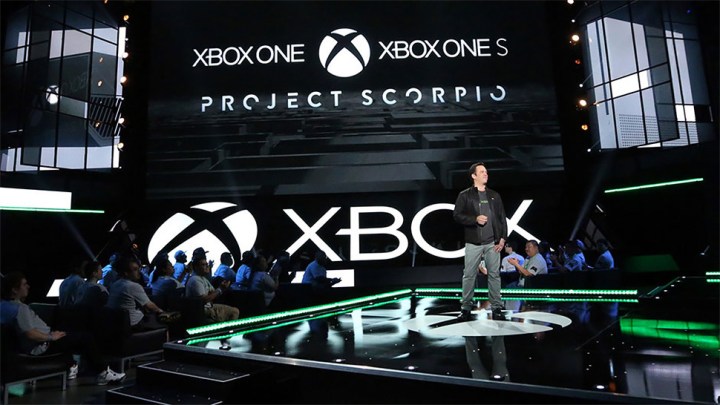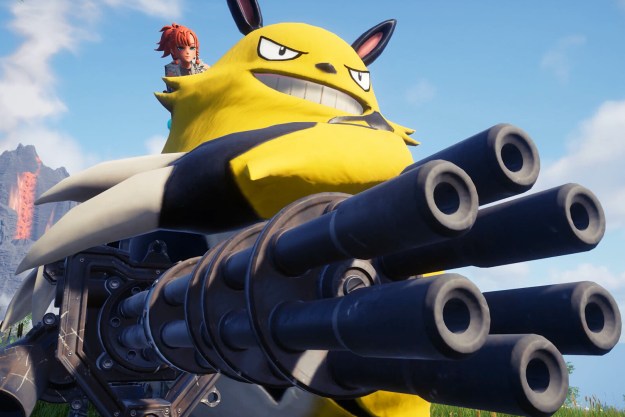
Console sales are stable, but they aren’t growing like the rest of the gaming world. The bag of tricks consoles used to entice new gamers to buy in every five to 10 years has run dry. Games cost so much to develop now that platform exclusive games are more rare, and sheer graphical prowess isn’t enticing players like it did for so long.
To compete with an escalating number of ways players can get their gaming fix, Sony and Microsoft are trying a new strategy that looks very similar the one Apple has been using for the iPhone.
It is a strategy that’s slowly transforming game consoles from cutting-edge systems we replace every half decade or so, to disposable entertainment appliances that must be upgraded every couple of years if you want to keep playing the newest and most spectacular games.
Constant upgrades with backward compatibility
In 2013, the console landscape began to shift. Both the PlayStation 4 and the Xbox One arrived, but rather than relying solely on unique hardware designed to outpace home computers, they were constructed directly from PC parts.
This year, Sony and Microsoft took their commitment to PC processors a step further, announcing interim upgrades that will bring their X86 based boxes up to speed with more-current, high-end home computer technology.
Upgrades guarantee gamers a feature that’s been lacking for years — backwards compatibility.
Apple’s success proves that people are willing to drop hundreds of dollars to upgrade their devices every couple of years. The apps and games you’ve purchased on one iPhone almost always work on the next, but if you don’t upgrade every three to four years, at minimum, you get left behind. Microsoft and Sony want in on that model.
To get there, they still have some work to do. Backward compatibility is a huge missing feature in consoles right now. Sony experimented with it on the PlayStation 3, but only a few titles made the cut. Microsoft’s Xbox has treated the concept with more respect, but both the Xbox 360 and Xbox One lack backward compatibility with many titles of the previous generation, forcing users to re-buy their favorite games for each console.
PC, Android, and iPhone users have faced no such issues with backward compatibility, and it freed everyone to upgrade at any time and know that their games and apps would transfer to the new phone.
Microsoft seeks to re-take the lead
In April, Sony confirmed that the PlayStation 4.5 will run all existing PS4 games, and unleash more features and effects for upgraded players. At E3, it showed off its new PlayStation VR headset. It hasn’t said it yet, but PSVR will be one of many reasons to upgrade to a PS4 Neo. To make VR the next big thing (and competitive with PCs), Sony will need that extra computing power.

Meanwhile, Microsoft announced both a slimmer version of the Xbox One, and a powerful new console clearly positioned to work with VR, dubbed Project Scorpio. A new “Play Anywhere” initiative, also announced at E3, will let players buy select titles that can be played on both Windows and the Xbox One.
Both companies are being cagey about their iterative platform strategies, but a comment from Microsoft is telling. One of its top engineers, Mike Ybarra, recently stated, “In the phone market, people are more used to upgrading fast and wanting the latest of everything. But with phones, your new apps had better work on that phone and the next one. According to what they’re telling us, the consumer expectation is — games and apps had better work even if I upgrade.”
Upgrades are the future
Microsoft and Sony are seeking to emulate Apple’s spectacularly successful iterative upgrade model. It has allowed Apple to fully transform software into a service that can bring users (and their libraries) forward from generation to generation, and upgrade to upgrade. Features like backward compatibility may usher in the kind of device loyalty that only Apple has been able to generate so far.
If the plan works, it will mean the console wars we’ve seen in the past will be nothing compared to the future. If players know their entire library of games will be available for years, and compatible with more and more powerful boxes, they won’t just be fans — they’ll have a powerful financial incentive to stick with the machine they already have, and invest in regular upgrades for years to come. The feeling may be much like the resistance many iPhone owners have to leaving Apple for Android, and vice versa.
That doesn’t mean it will be easy, or that success is guaranteed. The early 21st century is littered with companies that have tried and failed to emulate Apple. The arrival of VR and AR could entice players to move beyond gaming consoles entirely, too. Nothing is certain.
There will be winners, and there will be losers. It’s hard to be sure if Sony, Microsoft, or even dark horse Nintendo will prevail, but the battle to lock players into a single premium gaming platform has only just begun.
Editors' Recommendations
- Every rumored video game console: Nintendo Switch 2, PS5 Pro and more
- If you’re looking for a great new Switch game, you’ll dig Pepper Grinder
- Every key detail from Xbox’s business update: new console, multiplatform games, and more
- The video game industry has laid off thousands this year. Here’s what that means for you
- One of the Apple Vision Pro’s first games lets you play tabletop classics


